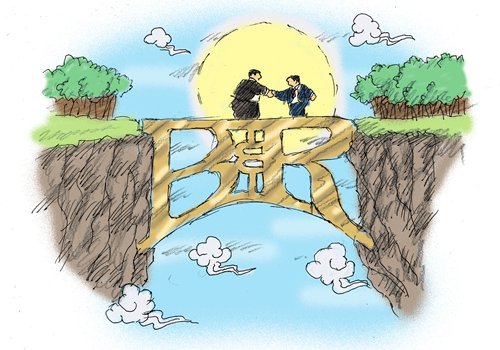China should clear air on aid to Africa

(GT/Peter C. Espina)
When the lid is eventually lifted on China-Africa relations through systematic factual data, it will be clear this is one of the most distinctively transformative partnerships that the continent has forged thus far.
It has been the tradition of donors to document the nature of support provided.
This is a well observed practice. China has however continued to do things differently focusing more on swift implementation of projects especially in some of the largest and poorest countries in Africa.
But as China-Africa relations deepen, there is even a greater need to invest in a knowledge bank that can provide hard data and figures on the internal mechanisms of its relations with Africa.
China's role in global poverty reduction, and particularly in Africa, has attracted both critics and admirers in equal measure.
Through non-politicization of aid, China has created a very unique role in international development and more so in Africa.
It is clear that the eastern nation is dismantling the international aid landscape through its unique position as both recipient and donor.
China has continued to document and share information on its rags to riches journey. That the eastern nation is well and truly on its way to effectively address its poor is well documented.
In sharing the magnitude of the problems that it faced not so long ago, the imperative message is to show developing countries in Africa that they also are not a lost cause.
Research shows that per capita income (average GDP per person) increased 16 times between 1978 and 2014.
China's extreme poverty rate reduced from 88.3 percent in 1981 to 1.9 percent in 2013.
This data is important for developing countries across Africa that continue to model their development journey along that of China.
But this is not enough. China must do more to shift the narrative by documenting the nature of support that has been extended to Africa.
China-Africa relations have increasingly come under the spotlight with many edgy headlines.
The central message has been that what China is doing in Africa is nothing short of neo-colonialism.
There are those advancing the narrative that it is only a matter of time before China takes the continent back to its pre-independence era. Others are of the view that China will take over the continent's resources by seizing the very same assets that it has funded and built.
Nothing could be further from the truth because China is giving Africa tools.
Through these tools it is incumbent upon the continent to leverage them to provide a life line for millions of people drowning in extreme poverty and hunger.
Having embarked on major infrastructural projects across the continent, China's footprints are reflective of the fact that the country is investing where there is the greatest need.
Improved connectivity can only improve trade within individual countries, regionally and internationally.
While many are closing up and looking inward, China is opening up and looking outward through its guiding principles to work with as many like-minded partners as possible.
There is a need therefore to address the knowledge gap on the nature of loans, grants and aid that are reaching Africa.
Without this information, myths and misconceptions thrive unfettered. But once placed under the spotlight these misconceptions could not be further from the truth.
Take for instance the panicked hype around China's loans to African government.
The China-Africa Research Initiative at Johns Hopkin's School of Advanced International Studies has left many astounded by revealing data that contradicts this hype.
Africa borrows from China much less than you think. Between 2000 and 2016, Chinese loans to Africa accounted for an estimated 1.8 percent of Africa's total external debt.
To put this into perspective, according to World Bank's international debt statistics, by the end of 2016, Africa's total external debt was a staggering $6.22 trillion.
Critics have not limited themselves to the politicization of debt but also the politicization of the increasing use of Putonghua on the continent. There can only be benefits with people speaking as many languages as possible.
As China's Belt and Road Initiative that aims to connect Africa, Europe and China by re-establishing old trading routes takes shape, the world will truly become a global village and people will need to communicate and comprehend each other.
China should not hesitate to blow its own trumpet on the much needed hardware it is giving Africa.
This could have far reaching consequences. Well documented facts would particularly highlight the fact that if any partner stands a better chance of fast tracking development especially in some of the largest and poorest African countries, it would be China.
The author is a Kenya-based journalist.
- BRI countries continue to facilitate trade, investment, financial integration: white paper
- Chinese investment helps revive centuries-old Czech firm
- Chinese vice premier welcomes more German investment
- GLOBALink | German car parts supplier continues investment in China's Hefei with confidence
- Italian entrepreneurs upbeat about investing in China

